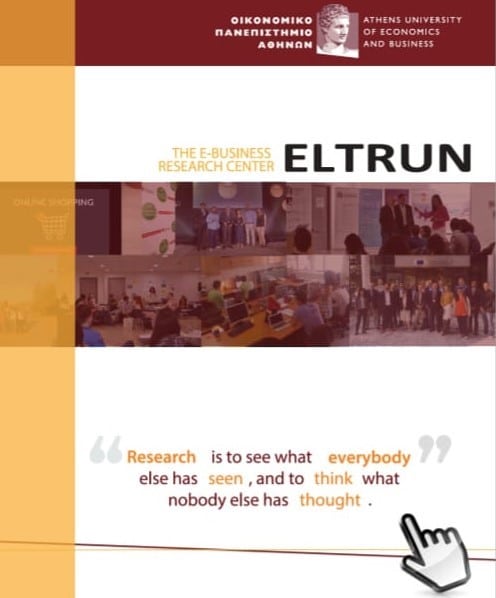ELTRUN is the E-Business Research Center of the Athens University of Economics and Business (AUEB) and belongs to the Department of Management Science and Technology. The center was established by Prof. Doukidis in 1994 and currently consists of more than 40 researchers, including 6 members of the academic staff of AUEB and 15 Post-Doc and academic staff of other Institutions.
Through the years, ELTRUN has successfully managed to produce state-of-the-art research and to complete more than 40 international research projects some of them funded by the Information Society and Technologies Program of the European Commission.
The center is actively involved in commercial projects and executive education programs to solve difficult real-life problems with the support of ICTs, various activities that are intended to increase awareness in the fields of E-Business, Digital Transformation, Industry 4.0, Innovation and Entrepreneurship, eCommerce and Big Data. ELTRUN supports scientifically the Athens Center for Entrepreneurship and Innovation (ACEin) of AUEB.

Professor George I. Doukidis
Dr. Anastasia Griva

Professor Yiannis Mourtos
Dr. Georgios Zois

Professor Adam Vrechopoulos
Dr. Chris Lazaris
The research group conducts basic and applied research in the context of Digital Marketing and Electronic Retailing through an interdisciplinary approach (i.e., Marketing, Information Systems and Electronic Commerce).

Professor George Lekakos
Dr. Dimitris Papakyriakopoulos

Professor Katerina Pramatari
Dr. Angeliki Karagiannaki

Professor Nancy Pouloudi

Professor Angeliki Poulymenakou
